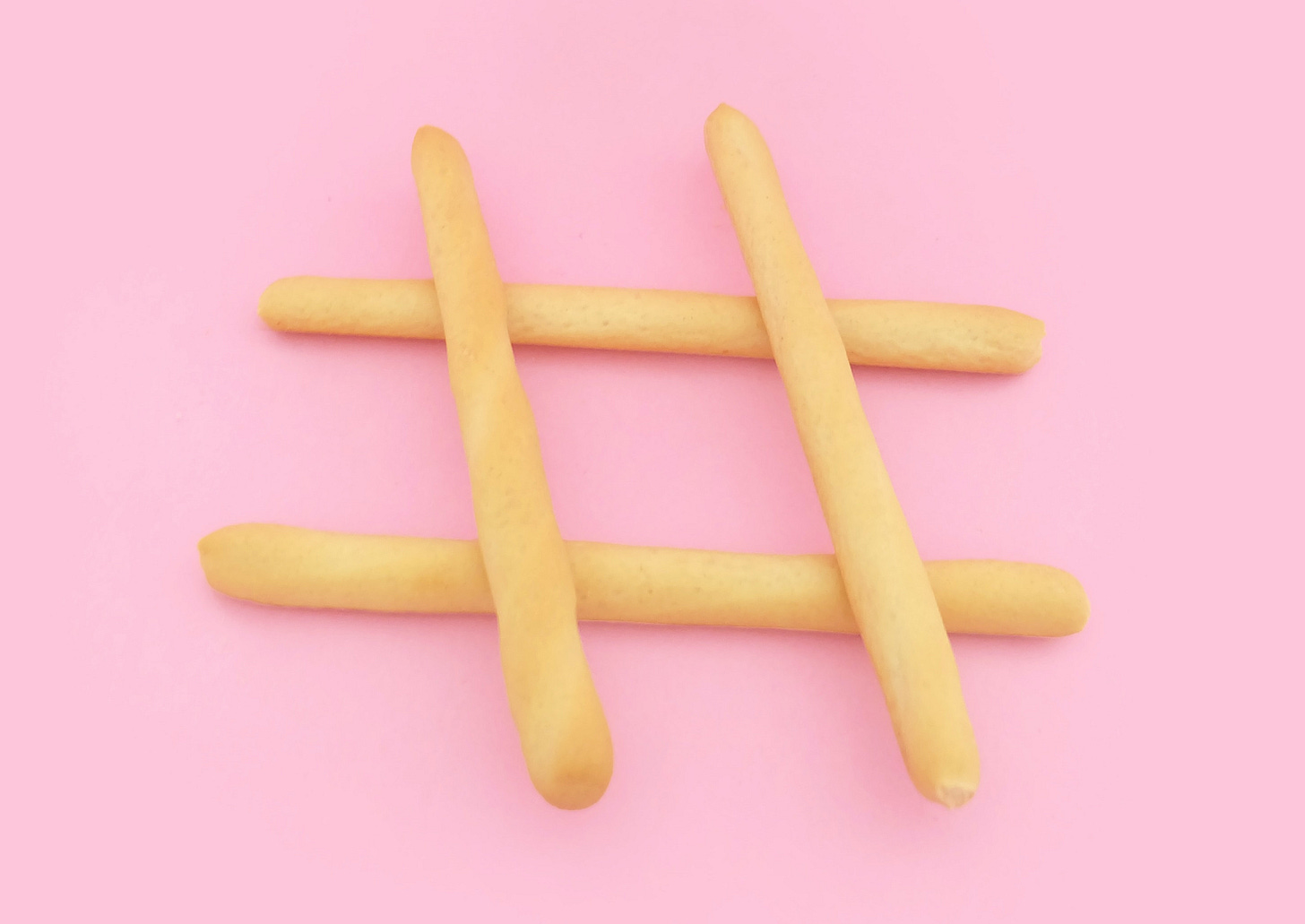
In this bonus episode, Ling Ling Huang returns to discuss how wellness culture affected her creativity and work as a professional violinist, how she’s changing her relationship with social media, how algorithms led her to questionable wellness products out of a desire to help a loved one, her upcoming TV series, and more.
Ling Ling Huang is a writer and violinist. She plays with several ensembles including the Music Kitchen, Washington Heights Chamber Orchestra, Urban Playground Chamber Orchestra, Shattered Glass, and Experiential Orchestra, with whom she won a Grammy award in 2021. Natural Beauty is her first novel. Learn more about her work at linglinghuang.com.
Resources and References
Ling Ling’s novel, Natural Beauty
Christy’s new book, The Wellness Trap: Break Free from Diet Culture, Disinformation, and Dubious Diagnoses and Find Your True Well-Being
How to Do Nothing by Jenny Odell
The SIFT method by Mike Caulfield
Christy’s online course, Intuitive Eating Fundamentals
Subscribe on Substack for bonus content and more
Transcript
Disclaimer: The below transcription is primarily rendered by AI, so errors may have occurred. The original audio file is available above.
Christy Harrison: Hey there! Welcome to this bonus episode for paid subscribers of Rethinking Wellness. I’m Christy, and my guest today is Ling Ling Huang, who’s back to discuss how she’s changing her relationship with social media, how social algorithms led her to questionable wellness products out of a desire to help a loved one who is struggling with an illness, how wellness culture affected her creativity and work as a professional violinist, her upcoming TV series, and more.
So without any further ado, let's go to my conversation with Ling Ling Huang. So Ling Ling, welcome back to this bonus episode of Rethinking Wellness. Thank you so much for sticking around and chatting with me further.
Ling Ling Huang: Of course, it's my pleasure.
Christy Harrison: So I would love to continue where we left off in the main episode. We talked briefly at the end about how you're changing your relationship with social media, and you mentioned also in the conversation that you were noticing sort of the wellness rabbit holes on social media and the Disinformation and that reading my book sort of helped you alert to that. So I'm curious what rabbit holes you got pulled down on social media and sort of what it was like for you to be in that space, especially when you were part of this wellness community with the story worked at and stuff.
Ling Ling Huang: Yeah, I mean, it's one thing to experience it because it feels like, I mean, when you're falling down the rabbit hole, you don't really notice. But reading about it in the wellness trap and seeing how much some of these companies made billions of dollars from Disinformation was so shocking. I think I wrote in the margins horrific. I do feel like social media, there's an aspect of it where if I feel like I'm not on, I feel like I'm missing out on things. And right before the pandemic, I took I think a three to four month break after I read How to Do Nothing by Jenny Odell.
Christy Harrison: Oh, I love that book.
Ling Ling Huang: I loved that book and it really changed my relationship with that. But it's been kind of a relapse constantly. With the pandemic. We were all so on our devices, and I wish I'd known about Sift earlier. Actually, I didn't encounter it until your book, but it's something I'm definitely going to use now or pastel Q Anon. Wow. There's just so much that I didn't know about, but I had seen the Wayfair situation and I was actually sent that by friends who were new moms. And from my experience in the wellness space, I've learned to be like, could be true. I'm not going to get too involved. I don't need to have an opinion on it, nor does anyone need to have my opinion on it. So we're just going to leave that. And then of course, it's such a kind of shocking thing that you would want to share it, even if it's just to be like, can you believe this? But that's how these things get traction.
Christy Harrison: It's good that you had that sort of intuition to not share it or you're just like, I don't know about this. And step back.
Ling Ling Huang: That intuition, I think is from learning the hard way with wellness things and with reading the Wellness Trap made me realize so many of the things that I did chill out to my friends advice or things like that. My mother-in-law, she is in remission now, but she had cancer and I remember getting her some cookbooks that I don't even remember what they were, and they were meant to be in conjunction with the chemo that she's getting. But looking back on that now, I'm like, what were those cookbooks? And also, you had such a fascinating, there was some footnote about how people, especially with breast cancer and things like if you're interested in alternative therapies, the risk you have of dying is so much more, maybe six times more. Those facts were so shocking. And I got chills remembering the cookbooks that I got for my mother-in-law, but of course, it's like I just wanted to help in some way, and it was a situation where I felt like I had no control and that was my way.
And so it's social media praise on that feeling, which you really write about so succinctly and so clearly drawing the parallels. And I'm so grateful for that. And that's what makes your book such a necessary read. So things like that. And so I'm very wary of online stuff and with publishing, there's always new authors and things like that, and I felt so great about getting a book out into the world, but then you read about other people and their experiences and things like that. And that saying, comparison is the thief of joy. I found myself kind of spiraling into anxiety and depression. So now once again, even though with book publishing I'm trying to be a little bit more online, I really, yeah, it's okay to not follow or to mute people that are adversely affecting my mental health for a bit. And maybe I'll check back in later, but it's been good for me to just keep an eye on how I'm doing with my mental health and social media.
Christy Harrison: Oh, that's great. Yeah, that's such a helpful thing. And it is such a relapse and back on the wagon kind of feeling to it, there is that addictive nature of social media really is engineered to keep us addicted, to keep us checking back and wondering what people are saying about us. And there's that such human pull to know what people are saying about us behind our backs or to want to participate in the conversation or to want to check back and see how many likes we're getting and all of that stuff. And to compare ourselves to strangers. It's really so harmful. And this brings me to another thing I wanted to talk to you about, which is creativity. Because I think in so many ways, social media can really hinder creativity, and yet creative people need it to promote our work these days too. When you have a book out or when, I'm not sure for music if you have to use it professionally at all, but a lot of freelancers in various arts and letters disciplines will have to use social media professionally. And so it's this sort of necessary evil and that sounds like it's been a part of your publishing experience for sure.
Ling Ling Huang: Yeah, and I mean those three to four months that I took off social media, I just basically consigned myself to the fact that I was going to miss freelancing violin work because so much of how people find you, the more you post, the more you're top of mind. And if someone needs to contract a gig, they just saw that photo of you doing whatever other cool thing or so then you get hired. And so it is a necessary evil where as creatives kind of so dependent on it and there's not really, not that I've found another way, not everyone lucks out and is like a Sally Rooney who doesn't need Instagram or something. And it's part of, to some extent, if you're an author or a creative person, there's an expectation that you're going to give people access to you. That feels like maybe a more recent expectation for everyone. It doesn't feel as much like a choice as what I imagined it might've been five to 10 years ago.
Christy Harrison: Totally. Yeah. It really does not feel like a choice in so many cases. I have said this on other episodes, but I feel like I would just walk away from it entirely if I didn't want to maybe write other books and want to have this sort of platform that would just reassure my publisher like, okay, she can reach people and sell books. I think there's still this sort of the metric of that shows success in the mind of people who aren't totally sure you're going to be able to have success other ways or something like that. So it's like this, if you want to continue being in a public space that continue writing books for major publishers, it's almost like you have to hold onto it. I was like, oh, maybe if I reach some sort of metric of success where it's undeniable, then I can get off. But I don't really know what that is. And I don't know, it's probably a conversation to have with the publishers, honestly. But I don't know.
Ling Ling Huang: I feel like there's not a metric that, it's another trick of constantly optimizing. You need to just amass as many followers as possible in order to have value in the eyes of it is such a shame because I mean, people will find you through social media and then they'll read your book, which is your many books, including the forthcoming fiction, and it's such important work that needs to be out there. So it's so great on that respect, but it's really hard to stay creative in a way. It really feels like shackles or something, but I feel like we're all kind of subject to this social media machine.
Christy Harrison: I mean, speaking more about creativity, I'm just curious how your experience of getting wrapped up in wellness culture affected your creativity. If it did, you ended up writing the book after that. So it sort of in a way sparked this writing aspect of your creativity maybe, or helped foster it or further it or something. But with violin and even with writing, do you feel like it sort of hindered you in any way creatively or you said it kind of took over your life at a certain point, right?












